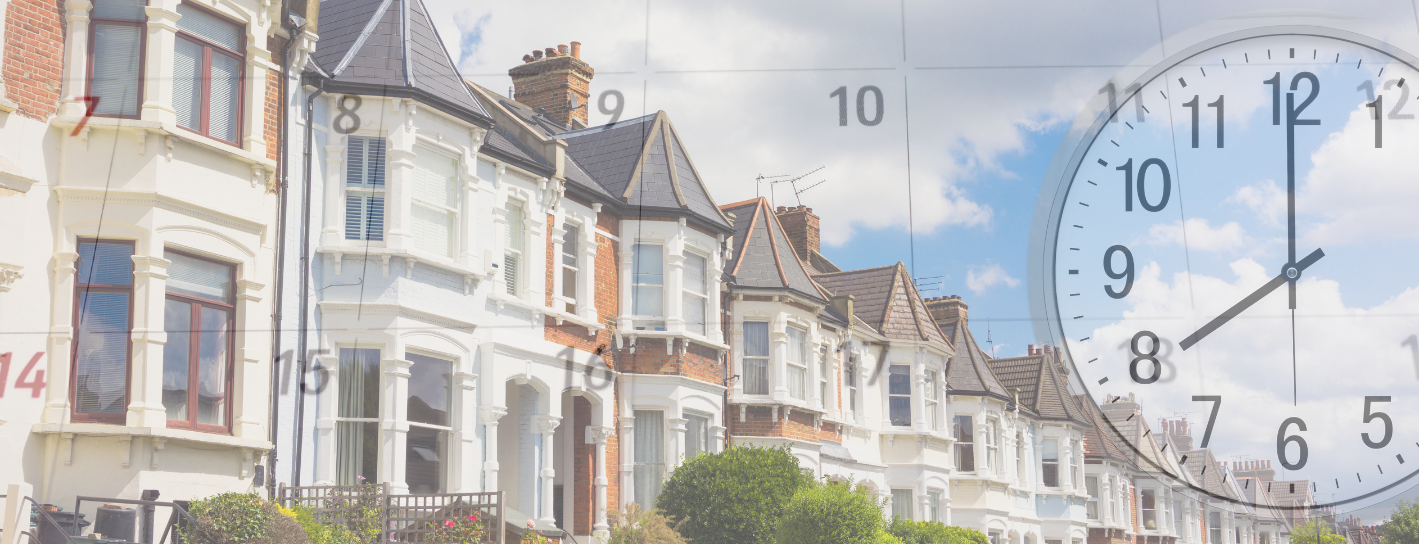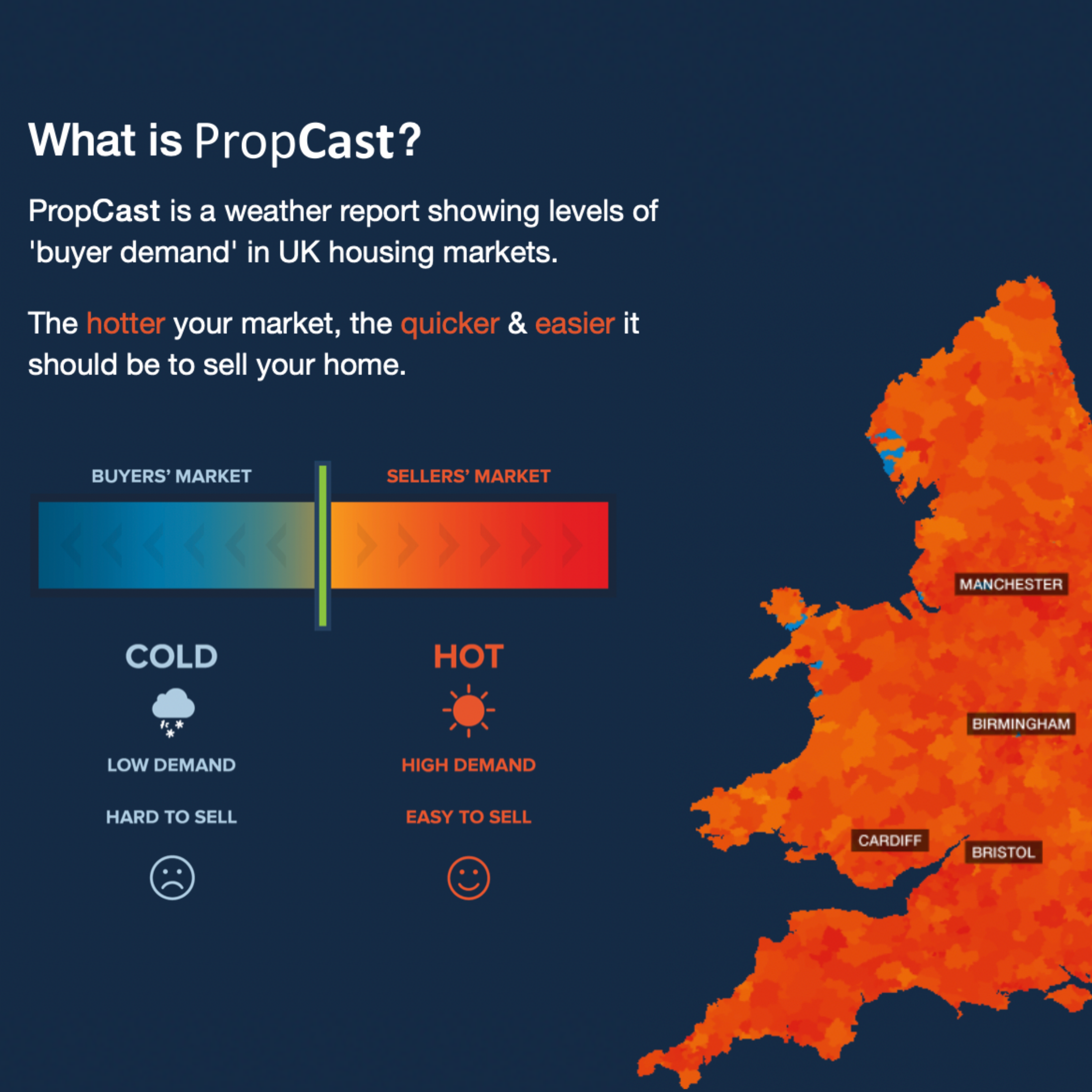First, let’s clear up what this question means as it is often misunderstood. As experienced property experts, we get asked this very often.
The time to “sell” a property can mean one of two things:
Let’s look at point number one. At the time of writing, the housing market is starting to slow down however a sale can still be agreed within two weeks but the local average is rising to 12 weeks at the moment.
Previously, certainly, since Covid, we have had the opposite of this – a “hot” market. In a hot market, timescales will get lower – possibly even as low as a few days. So, whenever you decide to market your property for sale, check how the property market is performing in your area.
No matter where you are, if you call us we can tell you how your area is performing – 01327 878926.
You can get an instant market update for your street here:
https://campbell-online.research.homesearch.co.uk/property-results
Or, you can get a quick overview your “Propcast” of your property market here:
”I think it is important to note that during any market, the question you need to be asking is how long are you prepared to give yourself to get the best price.
Sellers need to understand that it is important that you DO NOT look to sell your property as quickly as possible (unless of course you are in a situation where you need a buyer immediately).
In an ideal world, you need to allow for two weeks to get the best result possible. I have seen sellers and agents loose thousands because they rushed.
You need to allow time for every potential buyer to come and look at your property. It is not always clever to sell it to the first person through the door, or worse, before evening marketing the property.
However, you also don't want to find yourself sticking around on the market for too long. Any longer than 6-8 weeks and you need to consider a change either in the marketing of your property or your agent.
Either way, it works better for both sellers and buyers if you market a property for a fixed period of time and conduct viewings on the same day.
Jamie CampbellSenior Associate

There are several leading factors that can have an impact on how long it will take you to agree a sale on your property:

Once you have agreed a sale on your property, how long will it take to achieve legal completion?
Again, there are several factors that can affect this process. It can range from 28 days to several months for completion (AKA moving day) to happen.
Experienced good Estate Agents will help to bring this number down but even so, it can still take 8-12 weeks on average. In the UK at the moment, the average is 16 weeks.

In summary, there are many factors that can extend the length of time it takes to get your property from the beginning of marketing to legal completion, some are in the vendor’s control, like choosing a good quality professional agent and solicitor, other elements are not under the vendor’s control, like local searches, any circumstances in the lower or upper chain properties.
Selling a property can be a stressful rollercoaster-ride coaster-ride, so in order to limit this, choose your agent wisely – a professional experienced agent will advise you closely as to the best course of action for your particular circumstances, and engage with a quality solicitor, before you agree a sale so they can pre-empt and resolve any likely problems.
If you would like to talk to one of our Associates for a recommendation then feel free to leave your details by CLICKING HERE or telephone 01327 878926 during normal office hours and we can deal with your enquiry quickly.
Jamie and Jane x
(Find out more about Jamie, Jane and the rest of the team here)























